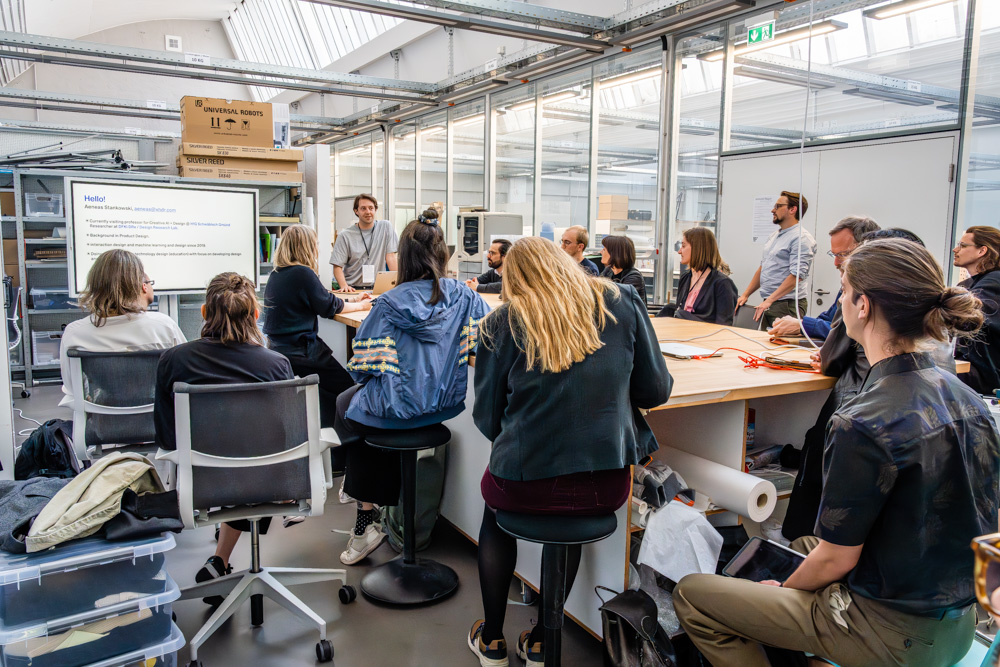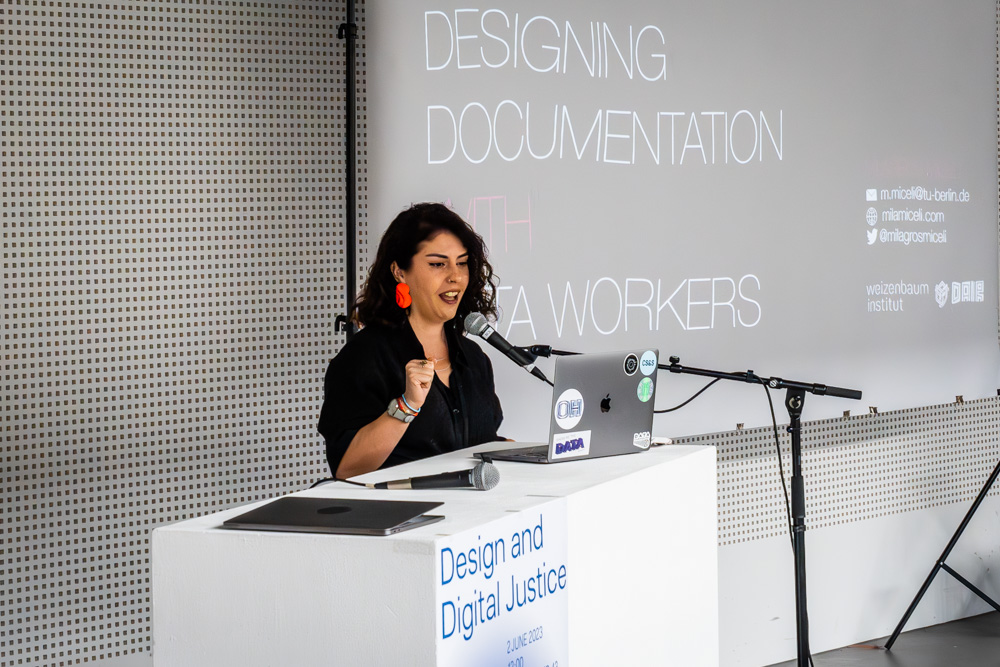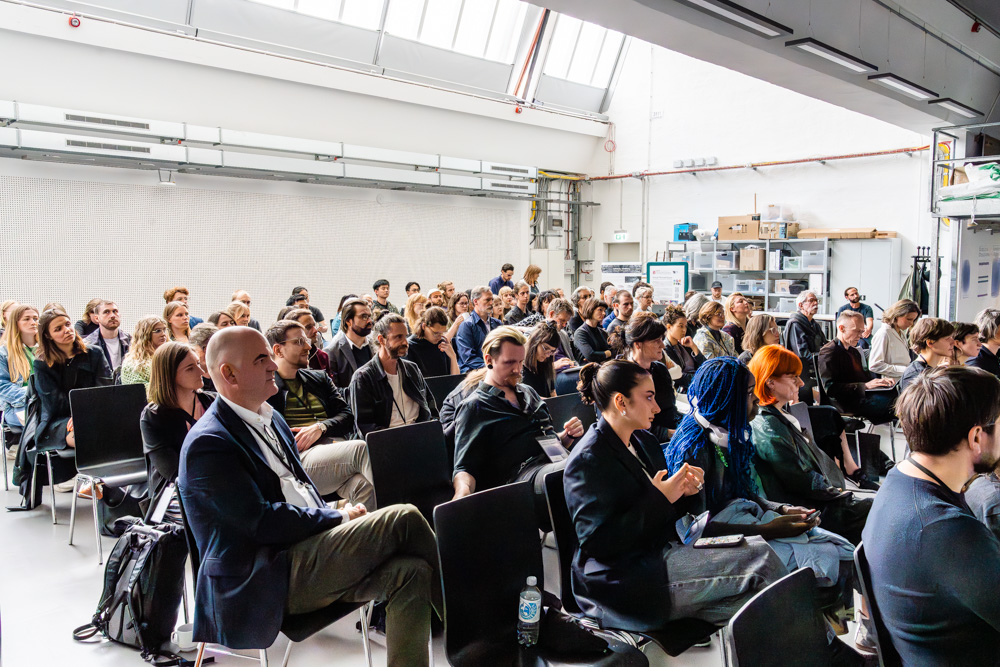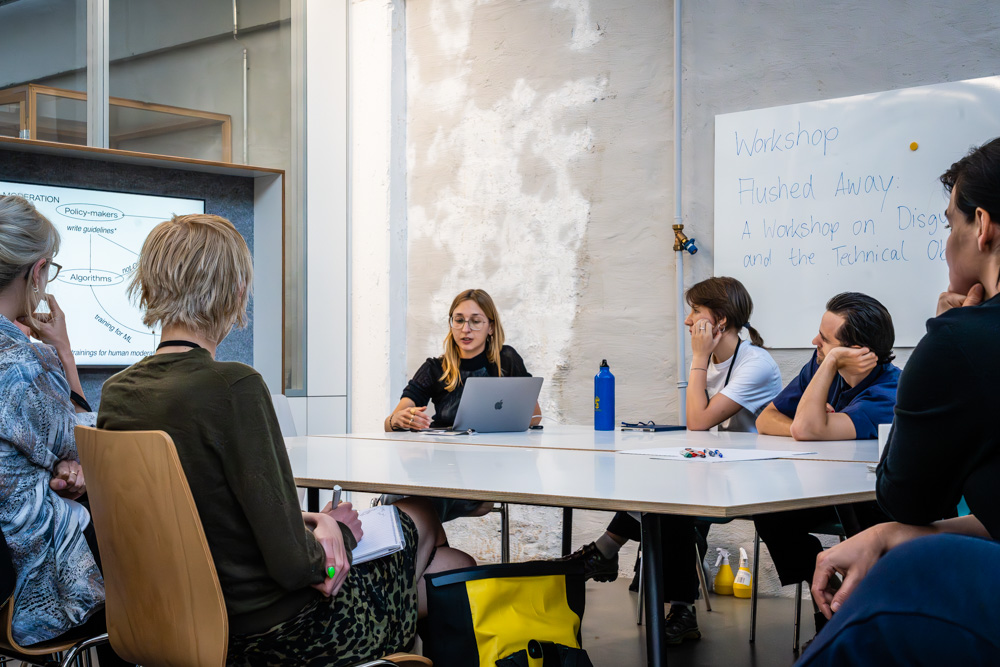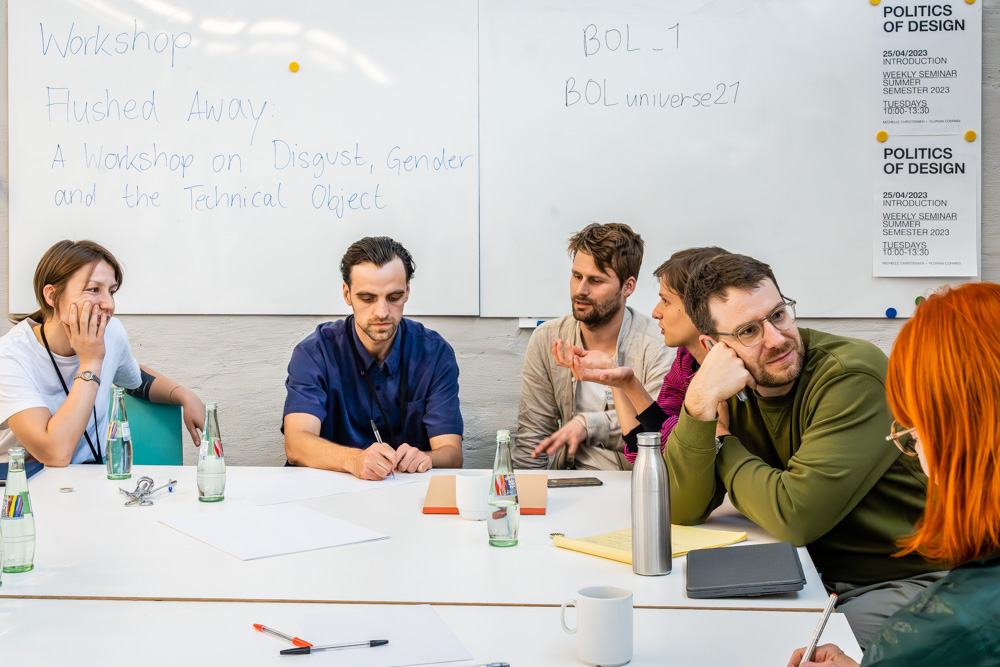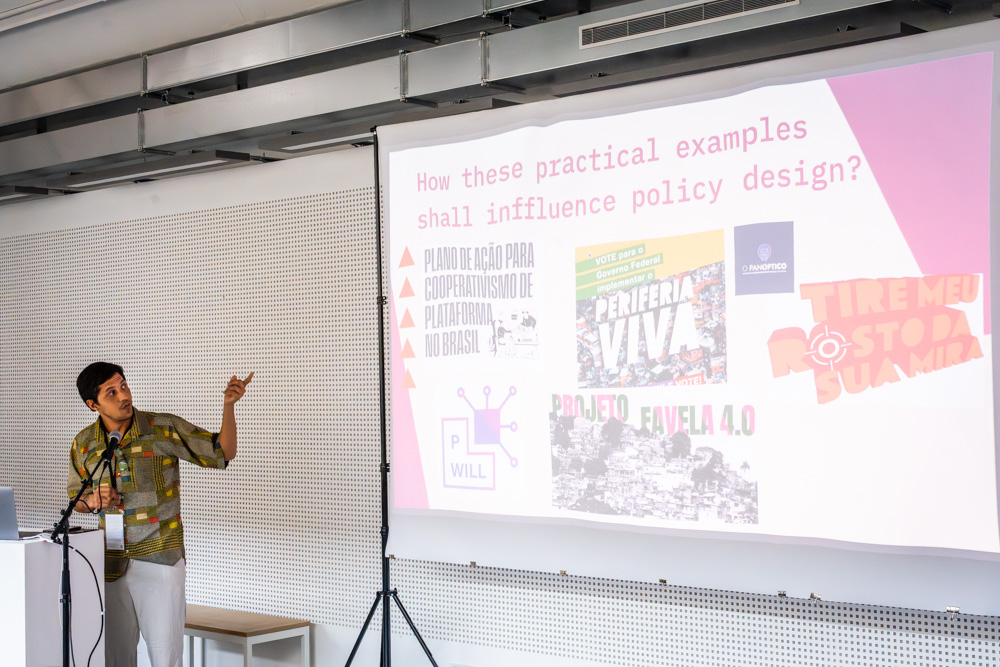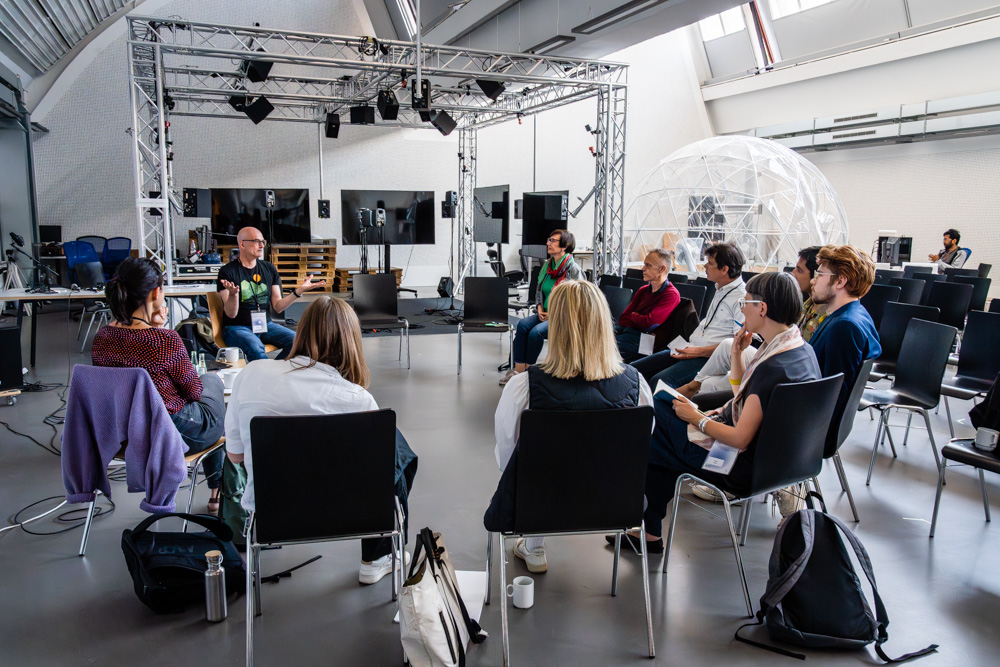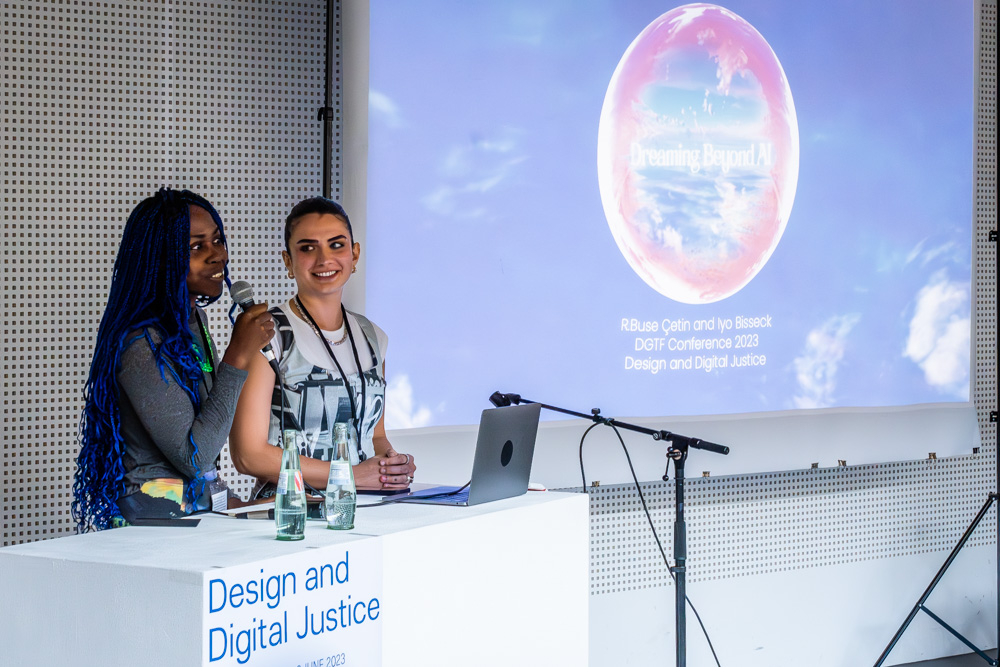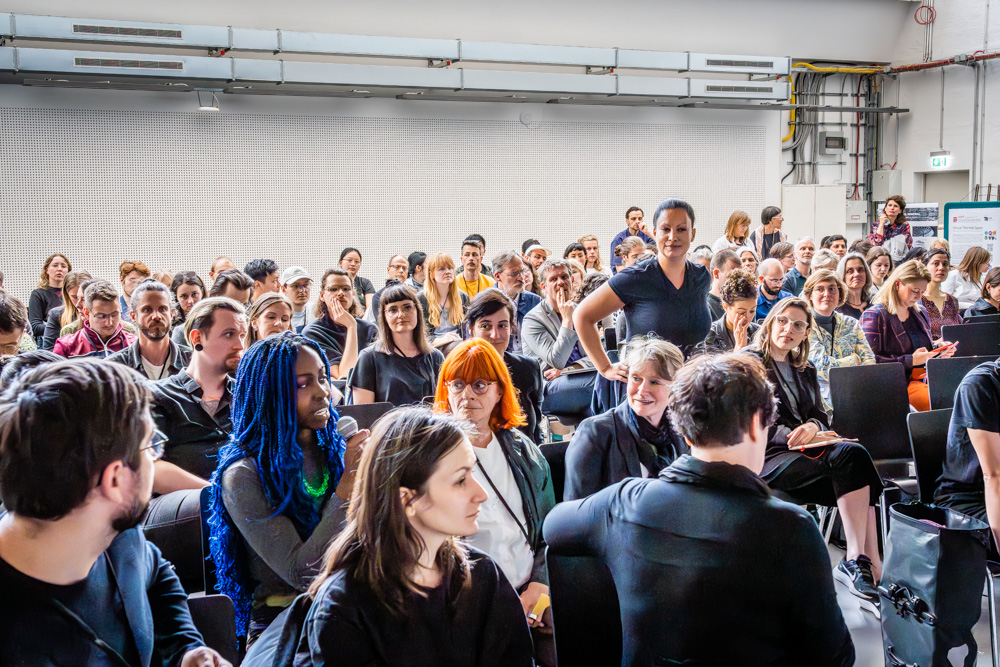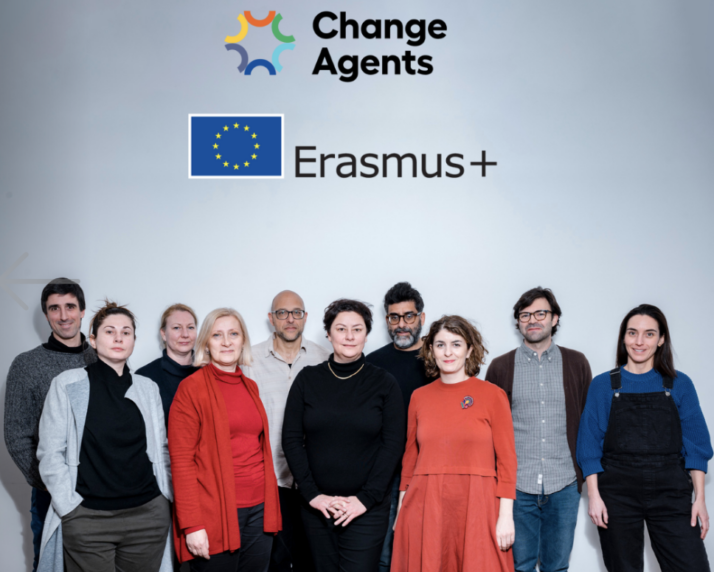„Design and Digital Justice“ – under this heading, this year’s DGTF conference was dedicated to current developments around digital technologies and artificial intelligence. How can design contribute to digital justice, what role does it play in this? Bianca Herlo, Sabine Foraita and Michelle Christensen organized and ran the very well attended conference on June 2 at the Berlin University of the Arts.
From inclusion, anti-discrimination and anti-sexism to privacy and digital colonialism, designers and researchers worldwide are working to support a fairer and more equitable digital future. The conference brought together current perspectives that address digital justice issues from within design research.
International researchers*, designers* and artists* opened many doors of critical engagement with design and research practices: Milagros Miceli, Alê Costa Barbosa, Raziye Buse Çetin, Iyo Bissek and Jens Krzywinski offered critical as well as constructive knowledge and visionary fictions for alternative futures.
A highlight was the open conversation with Kate Crawford, moderated by Bianca Herlo. Crawford is considered one of the leading scholars on the social, environmental, and political implications of artificial intelligence.
Over her 20-year career, her work has focused on big data systems, machine learning, and AI in the broader contexts of history, politics, labor, and the environment. In open conversation, she took many questions from the young audience and addressed current global challenges.
Finally, in the Open Spaces and workshops, participants* were able to deepen the discussions. Moderated by Tobias Witt, Corinna Canali, Ines Weigand, Henrik Lebuhn, Stefania Animento and Aeneas Stankowski, the workshops took up the themes of the conference and related them to participatory processes in dealing with machines, public administration and algorithms.
In the evening, the German Society for Design Theory and Research (DGTF) celebrated its 20th anniversary. Uta Brandes gave a special speech about the founding of the DGTF 20 years ago. Uta Brandes founded the DGTF together with Michael Erlhoff.
Overall, the Design and Digital Justice conference was inspiring, with many ideas to think further about the topic. The lively participation of students*, their excellent questions and the respectful, appreciative atmosphere contributed significantly to an insightful event. Once again, the DGTF conference provided a platform for networking and exchange. Overall, the organizers, speakers and participants made a valuable contribution to the promotion of digital justic
